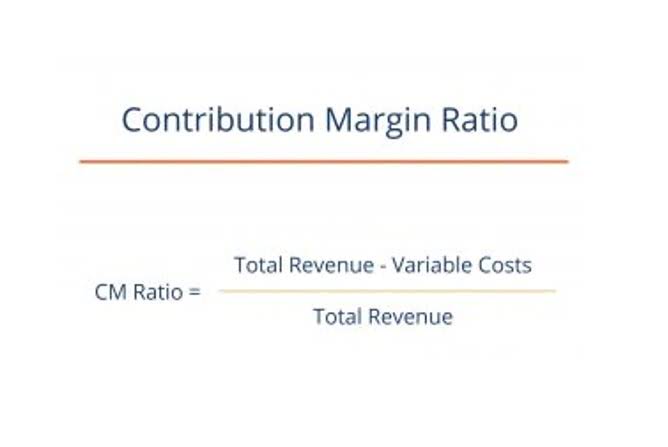
The CMA program is also available online in regions where the face-to-face delivery of the program is not possible. The women are surprised by how similar their questions are despite how different their jobs are. They each are assigned tasks which of the following is an example of managerial accounting? that require them to use various forms of information from many different sources to answer an important question for their respective companies. Table 1.1 provides possible answers to each of the questions posed in these scenarios.
Cost accountant managers
If the accounting statements are inadequate, inaccurate, or incomplete, management may struggle to make appropriate choices when mapping out a company’s long-term strategy. Constraint analysis helps companies run more smoothly and efficiently by identifying errors in the production of goods and services. Managerial accountants may use data like cash flow, revenue, and profits to identify problems in the flow and cost of production, which affects profitability. In a supervisory position, controllers oversee all aspects of the financial health of an organization, organizing reports, analyzing financial data, and creating strategic plans and goals. Because managerial accounting is not for external users, it can be modified to meet the timely specific needs of its intended users.
Time for Generating Reports
Certified Management Accountants (CMAs) are required to achieve continuing education hours every year, similar to a Certified Public Accountant. A company may also have research and training materials available for use in a corporate owned library. This is more common in Fortune 500 companies who have the resources to fund this type of training medium. Also, Daryn’s planning process would include the steps the company plans to use to implement to increase market share. As you can see, managerial accounting is very different from financial accounting.

Purpose of Reports
According to GAAP, a company must enter its financial accounting data in its balance sheets, income statements, and cash flow statements. International companies must likewise adhere to sets of accounting standards specific to their respective geographic regions. The key difference between financial accounting and managerial accounting lies in the intended users of information for each. Financial accounting provides financial data to third parties outside of the company, while managerial accounting provides important information that allows managers within the organization to make informed business decisions. Managerial accounting is the process that allows decision makers to set and evaluate business goals by determining what information they need to make a particular decision and how to analyze and communicate this information.
In each of these examples, the managerial accounting function would help to determine the variables that would help appropriately measure the desired goal as well as plan how to quantify these measures. However, measures are only useful if tracked and used to determine their effectiveness. The current-year plan may be to sell the company’s products in 10 percent more stores in the states in which it currently operates. The five-year plan may be to sell the products internationally in three countries, and the ten-year plan may be to acquire their chief competitor and, thus, their customers.

Once the mission of the company has been determined, the company can begin the process of setting goals, or what the company expects to accomplish over time, and objectives, or the targets that need to be met in order to meet the company’s goals. Planning occurs at all levels of an organization and can cover various periods of time. One type of planning, called strategic planning, involves setting priorities and determining how to allocate corporate resources to help an organization accomplish both short-term and long-term goals. For example, one hotel may want to be the low-price, no-frills, clean alternative, while another may decide to be the superior quality, high-price luxury hotel with many amenities. Obviously, to be successful, either of these businesses must determine the goals necessary to meet their particular strategy. Since human, financial, and time resources are limited, managers must select from among many alternatives, foregoing other options.
Empower your finances with purpose-based cards
- In this blog, we will discuss and understand the meaning, importance, types, and techniques of managerial accounting.
- When you think of these concepts in terms of the processes that are going on in the business, the numbers are easy to calculate.
- Financial accounting and managerial accounting are two of the four largest branches of the profession, in addition to tax accounting and auditing.
- Companies are always looking for a competitive advantage, so they may examine a multitude of details that could seem pedantic or confusing to outside parties.
As discussed previously, not all evaluations will involve quantitative or financial measures. They could use customer surveys to evaluate the perceived effect on the company’s reputation as a result of implementing this one-year plan. In addition to the financial gauges, organizations are now measuring efficiencies, customer development, employee retention, and sustainability. Without controls, it is very unlikely a plan would be successful, and it would be difficult to know if your plan was a success.
What are accounts payable?
Unlike traditional costing methods, ABC provides a more accurate picture of product and service costs, helping managers make better pricing and product mix decisions. Personal finances are closer to financial accounting rather than managerial accounting. This is because your personal finances often involve the preparation of financial statements to show income and expenses, and tracking your net worth.

They aim to provide detailed information regarding the company’s operations by analyzing each individual line of products, operating activity, facility, etc. Cash flow analysis studies the impact of a single financial decision or transaction to see the true impact of that purchase or decision. Financial professionals may look at several options and ways to finance a purchase based on that analysis. Cash flow analysis lets organizations make informed financial decisions and maintain sufficiently liquid assets in the short term.
Standard Costing:
Generally, higher-level managers spend more time on planning, whereas lower-level managers spend more time on evaluating. At any level, managers work closely with the managerial accounting team to help in each of these stages. Managerial accountants help determine whether plans are measurable, what controls should be implemented to carry out a plan, and what are the proper means of evaluation of those controls. This would include the type of feedback necessary for management to assess the results of their plans and actions. Management accountants generate the reports and information needed to assess the results of the various evaluations, and they help interpret the results.





